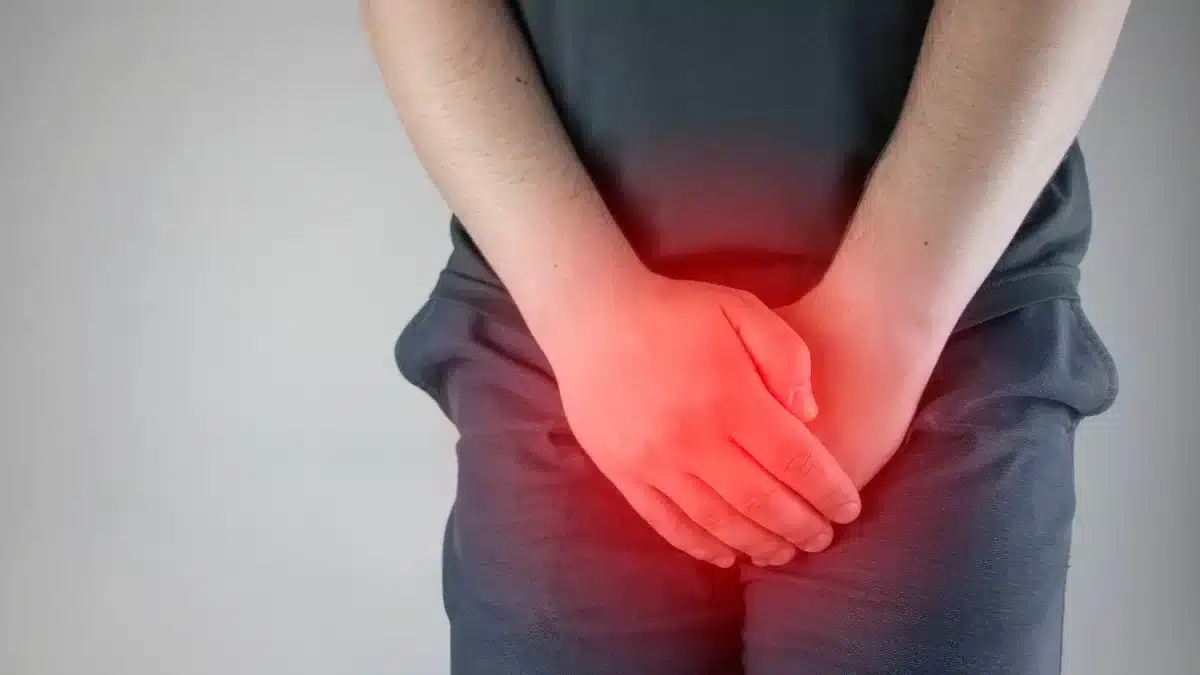Is Genital Herpes Painful? What You Need to Know
Genital Herpes, caused by the Herpes Simplex Virus (HSV), can result in painful sores and lesions in the genital area.
These sores, appearing as small blisters that break and form painful ulcers, can cause various discomforts, from mild itching to discomfort during urination.
“Is Genital Herpes painful?” is a common question, and the answer varies depending on factors like one’s immune system and the severity of the outbreak.
Exploring the levels of pain, managing discomfort and the emotional impact of Genital Herpes are vital aspects to consider for those dealing with this condition.
Are Genital Herpes painful
Genital Herpes, resulting from the Herpes Simplex Virus (HSV), frequently exhibits painful sores and lesions around the genital region.
These sores typically appear as small blisters that can break, forming open, painful ulcers.
The discomfort experienced can range from mild itching or tingling sensations to pronounced pain during urination and even pain while the sores are healing.
The pain level can vary depending on factors, which we will discuss in the next section.
Pain perception and variations

Pain perception in Genital Herpes depends on several factors.
These factors include the individual’s immune system, overall health, and the specific strain of the Herpes Virus causing the infection.
The strains can be either HSV-1 or HSV-2.
While HSV-2 is conventionally associated with more severe genital symptoms, HSV-1 can also cause genital ulcers, often with less intensity and fewer recurrent episodes.
Outbreaks of Genital Herpes
The initial outbreak of Genital Herpes usually brings about the most pronounced pain and discomfort.
This outbreak can include painful sores and flu-like symptoms such as fever, body aches, and swollen lymph nodes.
It typically spans two to four weeks, during which the pain can be most severe.
Subsequent outbreaks of Genital Herpes tend to be less severe than the first.
They often manifest as milder symptoms and shorter durations, ranging from a few days to a week.
However, pain and discomfort may persist during recurrent episodes, albeit to a lesser extent than the primary outbreak.
Pain management and relief
While there is no cure for Genital Herpes, various measures can alleviate the pain associated with outbreaks.
Antiviral medications are commonly prescribed to manage symptoms and reduce the duration of outbreaks.
These medications may help ease discomfort, shorten the duration of an outbreak, and prevent future recurrent episodes.
Additionally, practicing good self-care during outbreaks can aid in pain relief.
It’s crucial to maintain cleanliness and dryness in the affected area.
Applying soothing ointments or creams as recommended by healthcare providers and using warm baths are effective strategies that can provide relief.
The emotional impact of pain

Beyond the physical discomfort, Genital Herpes can also impact an individual emotionally and psychologically.
The pain associated with outbreaks can lead to stress, anxiety, and feelings of isolation or stigma.
Seeking support from healthcare professionals, counselors, or support groups can help manage both the physical and emotional aspects of coping with Genital Herpes pain.
Can Genital Herpes be painless
Certain people carrying the Herpes virus might not feel any pain or show symptoms.
Even without visible signs, these carriers can still pass on the virus to others, which plays a role in spreading Genital Herpes.
This means someone may unknowingly transmit the infection to their partners despite not experiencing any discomfort or symptoms themselves.
Therefore, being aware of this possibility is crucial, as it emphasizes the significance of practicing safe sex and seeking regular testing to prevent the spread of Genital Herpes.
Conclusion
Understanding the diverse range of pain associated with Genital Herpes is essential.
Its impact can vary among individuals and outbreaks, from mild discomfort to intense sensations.
While there’s no absolute cure, managing pain through medications and self-care helps ease discomfort.
Beyond the physical aspect, the emotional toll can’t be overlooked.
Seeking support is crucial for coping with the emotional burden.
Moreover, recognizing that some carriers might not experience pain but can still transmit the virus underscores the importance of safe sex practices and regular testing to curb Genital Herpes transmission.
Frequently Asked Questions
Is Genital Herpes always painful?
No, Genital Herpes doesn’t always cause pain. Some individuals might not experience noticeable pain, especially during the initial phase or if the symptoms are mild. Pain severity can vary among people with this condition.
Is Genital Herpes painful to touch?
During outbreaks, Genital Herpes can be sensitive and painful to touch due to blisters or sores on the genital area. Touching or contact with the affected area can exacerbate discomfort and pain.
How long does Genital Herpes pain last?
The duration of pain from Genital Herpes varies. Typically, during the first outbreak, it can last around 2 to 4 weeks. Subsequent outbreaks tend to be shorter, lasting from a few days to a week. Adequate treatment can alleviate discomfort and aid in quicker recovery.
WowRx uses only high-quality sources while writing our articles. Please read our content information policy to know more about how we keep our content reliable and trustworthy.






